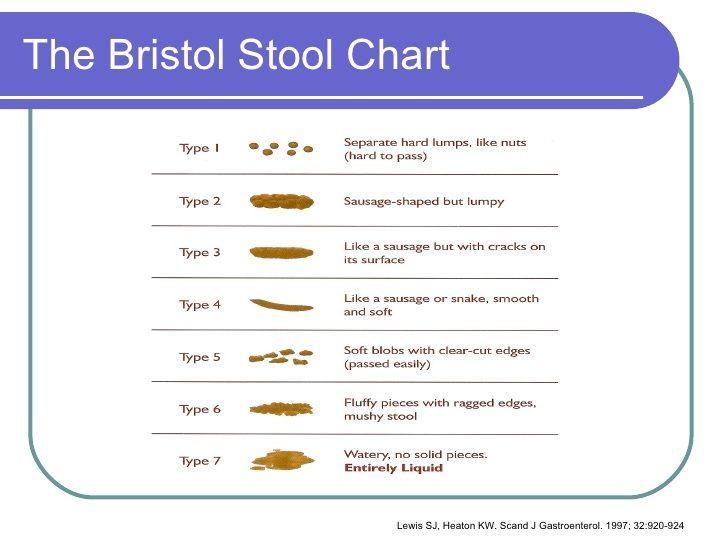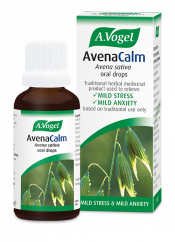What is constipation exactly?
It's normal to miss a poo the odd day. You may have had a change of routine – such as a holiday. You may be busy and have missed your usual opportunity. Maybe you didn't feel like it. Your government may have announced a lockdown and asked you to stay at home. That would gum anyone up.
You are said to be constipated if you have fewer than three bowel movements a week. The normal number of bowel movements is somewhere between that and three times a day. Poo should be look like a sausage. If it's hard and lumpy and looks like pellets then it's constipated. If you want to see a mugshot of a healthy poo, the Bristol Stool Chart is a delightful chart of different poos and their classifications. It's educational but you may want to look at it too long. Ha-Ha.

A constipated poo is hard and uncomfortable to push out. Sometimes a person may have to strain. It can be painful. It may not feel as if you have emptied everything properly.
The food is going in and not much is coming out. Just like the bin in the kitchen, when you don't empty it, it will start to get smelly. Food waste that isn't ejected will ferment and form gas. This will puff up the belly and cause noxious wind. Not an ideal scenario in confined places. Maybe working from home has its advantages after all!!?
How can stress and anxiety affect my bowel?
I am working from home at the moment, and I am watching the neighbour's cat. It has just spotted something, a dog or a bird. She has frozen with her shoulders hunched. You can tell that all of her muscles are tense. She is ready to pounce or run.
This is how the body reacts to stress: it freezes. Muscles tense and shorten. Emotions can affect the speed at which food can travel through the body. It can be too fast or too slow. It can cause painful muscle spasms.
The gut contains millions of nerve cells. These send and receive signals, to and from the brain. This communication is the brain-gut axis.
Stress or anxiety can make your brain more alert to signals coming from the gut. 'Butterflies in the tummy' can be felt when nervous or excited. Pain, bloating and discomfort can be felt more acutely when a person is anxious.
The gut is also populated by billions of micro-organisms and bacteria. These can influence the health of the gut and the brain.
70% of our immune cells live in the digestive system.
Most of our serotonin (our happy hormone) is made in the gut.
Stress can affect and change gut bacteria. This can change the health of the gut and also how we feel. So, it's a chicken and egg situation. Is the gut causing the stress or is the stress causing the gut problem? If you don't know, then it makes sense to consider both. Treating the mind and body instead of isolating bits. This is one of the principles of naturopathic medicine.
What you can do for your bowel:
Choose food that will make the ideal poo.
Foods that are rich in fibre are what makes a happy colon. We are all supposed to eat up to 30g of fibre a day, but in the UK the average person eats only 19g a day! It's a wonder anyone's toilet is flushing.
Fibre comes in two types: fermentable and less fermentable. Your wheat bran, wholegrains and brown pasta contain the less fermentable type. They called this 'roughage' in the olden days. It bulks out stools and makes them easier for the muscles of the gut to grip onto.
The fermentable type of fibre is found in fruit, vegetables and things like beans. If you eat too much of these too suddenly, it can make you very gassy. The fermenting is done by our friendly bacteria. They love this kind of fibre. A slow introduction to these foods will ensure that you don't get too bloated. Chew them (and everything else you eat) really well. This will help the whole digestion process, including the bit at the end that's currently held up!
Drink more water.
This is really important. The colon is the body's fluid regulator. Most of our fluid is absorbed into the bloodstream by the colon. If we are skimping on our water intake, the colon will be forced to take it from the waste matter. This will leave the waste matter dried-out, hard and uncomfortable to pass. Drink your litre and a half a day. That's plain, still water, folks, not the fizzy or flavoured stuff.
Prop your feet up when you go to the loo.
Your bowel can't open properly if the knees aren't above the hips. We are built to squat when we go. The modern toilet was designed with scant reference to human anatomy. Use a foot stool to put your feet on, and settle into a good read. Relax.
Don't ignore any urge to go to the toilet. If you keep ignoring the signals, the body may stop telling you.
Get those muscles moving.
Peristalsis is the name for the muscle movement of the bowel. It's a wave of contraction,that passes along the bowel and takes the bowel contents along with it. Sometimes this process can get sluggish, or the bowel doesn't seem to know when to initiate it. You need the muscles to contract and move the food along.
Think of how many muscles you have in your abdomen. If you are a lazy bones and have poor muscle tone, it will affect your digestive transit time (how long it takes for food to travel through your digestive system, having the good bits taken out and the wastes jettisoned). Being physically active will help. Try to do this every day. Go for a walk; do some stretches and twists. You can google yoga poses that may help. There's a wind-relieving pose that may be a good one to start with.
Bile, the green stuff our liver produces, is one of the triggers for peristalsis. If a person has their gall bladder removed, it affects bile flow. This can slow the bowel and cause constipation. You may have a gall bladder and still have sluggish bile flow, because your liver isn't producing bile to order, or eating on the run is reducing the 'volume' of the signal to the liver. Sit down to eat. Relax. Chew...
Other signs that your bile flow is paltry: you may feel too full after meals, and be super-farty.
To get the bile moving you need bitter-tasting stuff at the start of a meal. The Italians will use bitter lettuce like radicchio, rocket or chicory before a meal. These stimulate digestive secretions like saliva and bile. They do taste bitter but that's what makes them work. My mum used half a grapefruit as a starter to be fancy in the 1970s.
If you can't get your hands on exotic lettuce, A.Vogel's Digestisan will work just as well. It contains the herbal 'bitters', dandelion and artichoke. You take it 5-10 minutes before each meal. It's licensed for the relief of indigestion, bloating and flatulence.
What you can do for your mind:
Deep breathing.
Try to find something that calms your mind. Anything that will help you to practice deep breathing. Listen to music, do yoga or just sit there. Whatever makes you comfortable.
Breath in deeply, fill the lungs. Count to 4. Then breathe out slowly on a count of 4. Do this at least 3 times. As you get better, increase the breath out to a count of 5 or 6. And try it repeating the technique for a longer time.
This is a knacky trick that Navy Seals call box breathing. Deep, slow breathing can and activate the vagus nerve. This runs from the brain to the gut and is part of the parasympathetic nervous system. When this nerve is stimulated it slows the heart and muscles relax. It overrides any stress signal being sent from the brain or the gut. It's a veritable chill pill that is effective and completely free. And it can be done anywhere!
Get more sleep.
An inadequate amount of sleep affects mental stamina. It's another chicken and egg! Less sleep makes you more stressed. More stress and you sleep less.
There can be a vicious circle of sleep, stress and digestive problems. It can seem overwhelming. Just break the circle anywhere. Any positive impact on one issue will slightly improve matters. Then you can work on the next small change. Give it time. Lego City wasn't built in a day.
Try A.Vogel’s AvenaCalm.
A.Vogel's AvenaCalm is a herbal tincture made from oats. Like a medicinal porridge that has a licence for the relief of mild mental stress. Oats are full of B vitamins and other calming constituents. These can nourish the nervous system. It can help calm the smooth muscle in the gut and soothe rattled nerves. It takes a little while to work, but can be a useful remedy for things like work or exam stress. It can help with sleep as well. Its mild action is suitable for long-term use and it has no contraindications.
Most constipation can be helped with dietary and lifestyle changes, and you can do this yourself. If it's not working you should speak to your GP and get some professional help and advice. Don't ignore worrisome symptoms like bleeding.
My Top Tip:

Prepared using extracts of the oat flower herb, AvenaCalm can help to gently calm you nervous system, helping you to feel more relaxed in the face of pressure.
"This product has changed my life."








